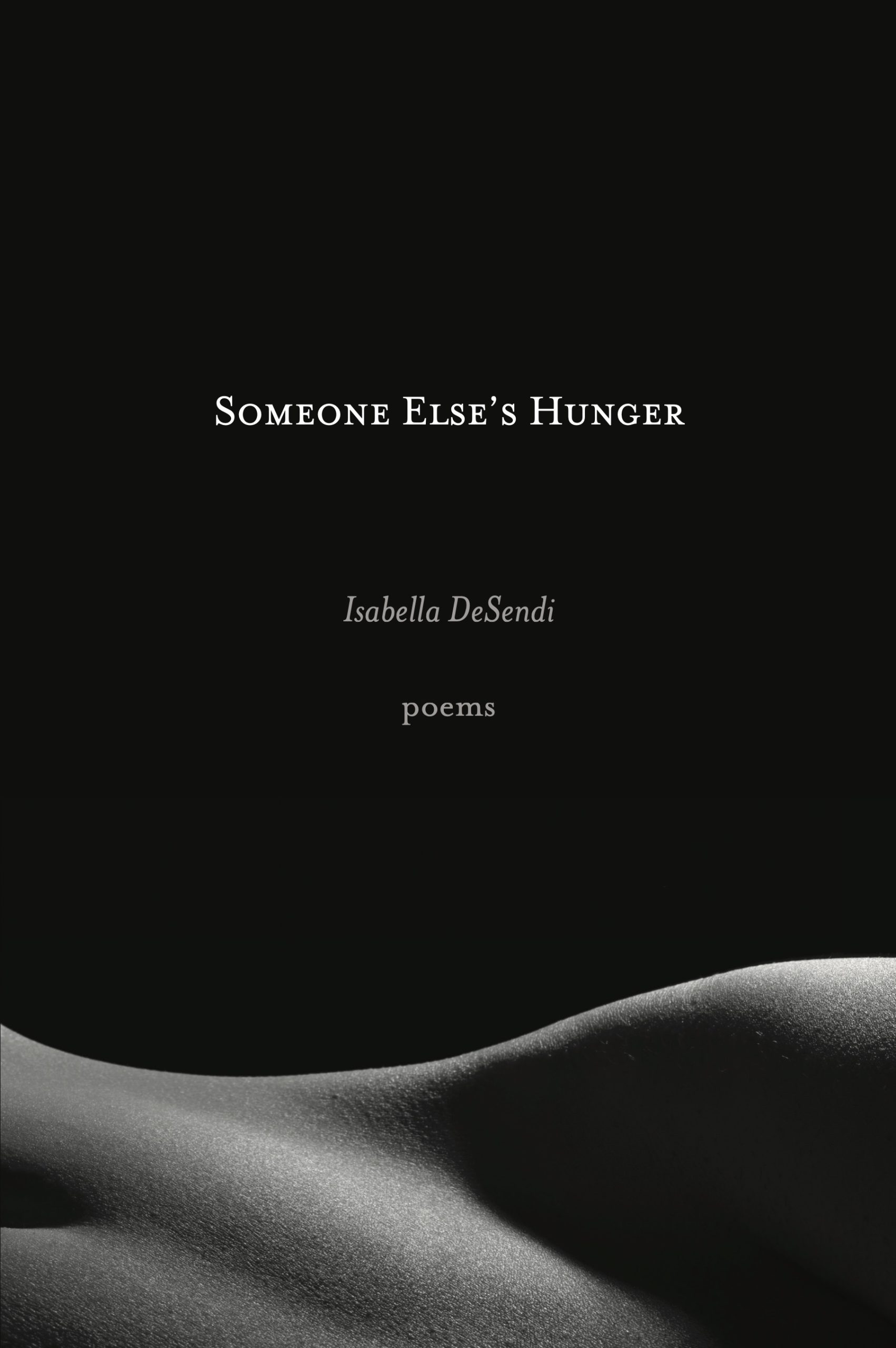
paper • 120 pages • 17.95
ISBN: 978-1-961897-58-8
eISBN: 978-1-961897-59-5
September 2025 • Poetry
Received a Starred Review in Publishers Weekly
What is desire to the traumatized body? In Someone Else’s Hunger, Isabella DeSendi seeks to answer just that. Through self-portraits and sonnets, elegies and odes, we see the body as a site for both pleasure and trespass. At the core is always hunger—hunger for love, for invited touch, hunger for a self that feels whole. The speaker asks, “If I have hunger, if I possess it / …isn’t that what this insatiable void is?” To survive is to accept the fragments left behind, the self caught in the border between past and present, English and Spanish, the U.S. and Havana. DeSendi leaves no petals unplucked in this account of what it means to continue in a world full of destruction and joy. “That’s the problem with surviving again and again, as we have. Poppies will yawn / themselves awake, their bloodstained mouths. / One day you’ll have to live.”
Someone Else’s Hunger, Isabella DeSendi’s blazing debut, fiercely reclaims “the woman inside me / alchemizing, sanctified” as the poet locates her power in a deeply racist, misogynistic world where “even orchids look like lips / bruised and sewn together.” Unafraid to examine both the violences done to the self and the violences internalized, DeSendi’s scintillating poems flash and slice, but ultimately cut to repair and restore both the self and the reader lucky enough to take refuge in these remarkable pages.
“I can’t believe / what we do to each other,” declares the speaker in this urgent, urban collection rich with the music and imagery of New York City. With vivid, visceral detail, Isabella DeSendi explores the identity of a young Latina responding to inherited stereotypes and misogyny. The poet employs persona and ekphrasis to reimagine the mythos of patriarchy. From Mary to Eve, Eurydice to Medusa, and in a series of self-portraits, we see the female body: full of appetite but starving, full of desire but without consolation. Ultimately, this is an ode to self, to love, to survival—”sometimes / in the breaking I am bettering / and in the bettering I am free.”